"Hello! Cui Can from the "I'm from 1997" series: From Hong Kong to Suzhou, growing up side by side with folk music
They, born in 1997, coincided with the prosperous age, the same age as the Hong Kong SAR; they grew up in 1997, experienced great changes, and kept pace with the times; they developed in 1997, with ideals and the same heartbeat with the motherland. Twenty-five years have passed, and they have left a clear imprint of the times. It is their common choice to walk forward and serve the construction of the motherland.
To celebrate the 25th anniversary of Hong Kong's return to the motherland, Jiangsu Radio and Television Station Wosu.com planned to launch "Hello! "I'm from 1997" series integrates media reports, showing young people's vivid growth stories and wonderful struggle experiences with real lenses and delicate brushstrokes, and profoundly recording their sincere dreams of advancing together with the motherland and chasing a bright future.
On June 23, the first day of the plum season in Suzhou in 2022, the weather was sultry and unbearable, and a heavy rain was urgently needed.
At 7 o'clock in the evening, "Timely Rain" arrived as scheduled, and a concert related to "water" - "Ode to Rivers, Lakes and Seas" was staged in the concert hall of the Suzhou National Orchestra. Through the concert hall, the sound of the silk and bamboo orchestra is sometimes released, setting off a stormy sea, and sometimes restrained, flowing out of the bridge, the coolness is soaked, and the hearty is dripping.
At this moment, Cui Can, as one of the performers, is holding a pleasing musical instrument in her forehand—Zhongruan. She sits on the stage together with other performers. Her fingertips dance freely between the characters, as gentle as jade. The sound of the piano slanted out.
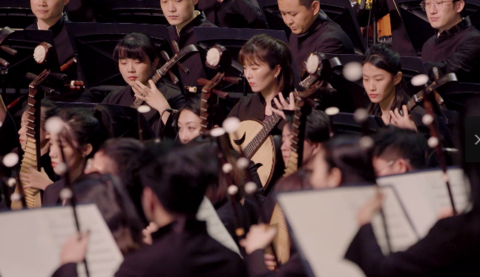
Thirty years of learning the piano, three choices in life, starting from Xi'an, growing rapidly in Hong Kong, and now settled in Suzhou, Cui Can and a group of younger performers side by side, seeking the upward growth of traditional national musical instruments.
(Zhongruan: One of the oldest plucked instruments in China, a kind of national pipa, has a history of two thousand years. It is said that Ruan Xian, one of the Seven Sages of Bamboo Forest, was named after Ruan Xian, who was one of the seven sages of the bamboo forest, and was later referred to as Ruan. There are five kinds of Ruan: Bass Ruan, Small Ruan, Middle Ruan, Big Ruan, and High Ruan.)
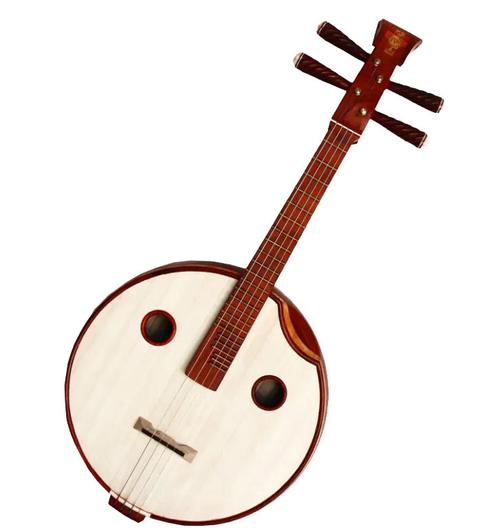
I met Zhongruan for the first time and embarked on a professional road by chance
The first meeting between Cui Can and the musical instrument happened more than 30 years ago in a shopping mall in Xi'an. Erhu, violin, guzheng, guqin... large and small musical instruments are displayed one after another. At that time, Cui Can was still a primary school student. Every time she went to the mall, she went straight to Lexing, immersed in it and did not want to leave, and was often "forcibly" dragged away by her parents.
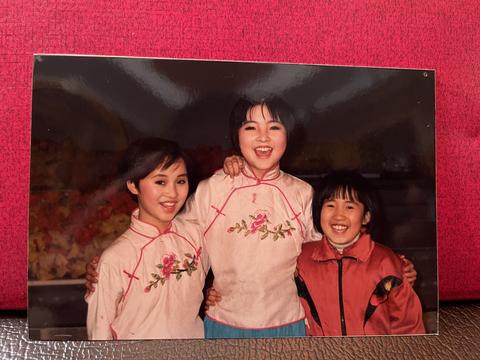
Childhood Cui Can (second from left)
By chance, his parents took Cui Can to his cousin's music teacher's house as a guest. There, Cui Can met Zhongruan for the first time and also met his future enlightenment teacher.
"There was a round-shaped musical instrument on the bed at the time. I was curious. I didn't take my eyes off. The teacher told me that it was 'Ruan'. I fiddled with it twice. I was so excited that I chatted with my parents, and I told my parents that I wanted to try to learn it, and they agreed."
After that, eating, sleeping, and practicing the piano became three major things that Cui Can must do every day. Day after day, during the winter and summer vacations, the time for practicing the piano can even reach 10 hours a day.
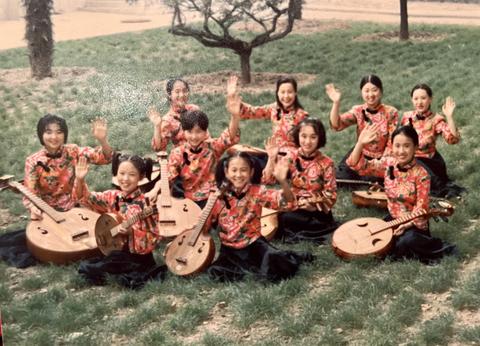
Childhood Cui Can (first from left)
"Every Qin boy's childhood was boring and painful, and I was quietly lazy." Recalling his time as a Qin boy, Cui Can showed a sly smile. In the 1990s, when tape recorders and tapes were all the rage, she would secretly move the tape recorder into the room, plug in her parents' pop song tape, press the record button, wash the original song on the tape, and record her practice content completely. Press the "play" button again and again to play, trying to create the illusion of diligent practice and fool the parents outside the room.
"These little tricks are very clumsy. Parents can hear it, but they don't expose it." Occasionally, he is happy because he succeeds in being lazy, but Cui Can enjoys more and more self-breakthroughs in piano practice. "For two or three months, I've been playing a tune, a few syllables, and even practicing a technique repeatedly, but once I get to the next stage, the sense of accomplishment is huge, and it's a meaningful delayed gratification. "
In 1994, after the "painful" time in the first few years, Cui Can was about to enter middle school, "I was working very hard at that time, and the teacher thought I was quite talented. I'm going to the high school attached to Xi'an Conservatory of Music."
Beginning by chance and becoming diligent, Cui Can's professional road started from this.
Away from Hong Kong, the road of continuous advancement for top music students
Based on her early efforts, Cui Can's learning path for Zhongruan became smoother and smoother: she was admitted to the high school attached to Xi'an Conservatory of Music without any suspense. After graduating from high school, she entered the Xi'an Conservatory of Music, and was sent to the China Conservatory of Music to study. After finishing his studies with the first grade, he returned to his alma mater, Xi'an Conservatory of Music, as a teacher of Zhongruan, until he saw the recruitment notice of the Hong Kong Chinese Orchestra...
"The Hong Kong Chinese Orchestra is the number one presence in our folk music circle. When I was in school, I was among the best in various exams, and my professional ability was also the best. When I played, I always sat at the front. However, once I entered the Hong Kong Chinese Orchestra, I would In an environment where there are many masters, I may suddenly go from the middle of the stage to the most corner position. At that time, I thought, even if I sit in the last row, I have to go and see what a really good orchestra looks like.”

Cui Can, who first arrived in Hong Kong in 2005
Excellent musicians from all over the world have participated in this competition. Five rounds of assessments are continuously eliminated and the difficulty is constantly escalating. With his perfect piano skills and calm attitude, Cui Can fought his way through the fierce competition and won a place in the Hong Kong Chinese Orchestra.
"Looking back now, I am very fortunate to have boarded the super-fast train of the Hong Kong Chinese Orchestra when my energy and physical strength were at my best."
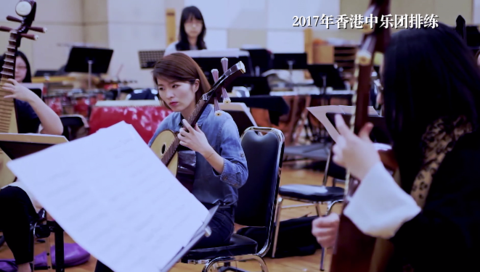
In her impression, the Hong Kong Chinese Orchestra is extremely efficient, and the most exaggerated one, the orchestra rehearsed three sets of concerts in a five-day rehearsal time, adding up to 30 pieces. "This requires us to read the score as quickly as possible, and at the same time to cooperate with the conductor and other musicians, and finally integrate them together to complete a high-quality concert. I remember that week when I finished playing the 30th piece, I turned it on again. The first piece was so unfamiliar that it seemed like I had never played it before." It was in such a working environment that Cui Can was forced to move forward from the beginning, to actively pursue efficiency, and the long-term inertia reshaped Cui Can.
Rehearsals are held during the day from Monday to Friday, and after the rehearsal at 4:00 pm on weekdays, Cui Can rushes home non-stop to teach students Zhongruan. On the weekends, she couldn't stop. She taught students during the day and gave official performances at night. Her life in Hong Kong was very busy. Even when she first arrived in Suzhou, she still maintained the habit of rehearsing in Suzhou on weekdays and flying back to Hong Kong to teach on weekends.
"In addition to pursuing efficiency, my Zhongruan performance is also constantly improving. In the early days, what I learned from the seniors of the orchestra tended to be technical aspects such as playing skills, reading ability, ensemble ability, etc., and later rose to music processing, music Learning at the literacy level such as expression ability has gradually realized the transformation from a fledgling student to a professional performer.” Cui Can compared himself during the Hong Kong Chinese Orchestra to a sponge that fell into the sea, absorbed it desperately, and grew rapidly.
At that time, in addition to the official large-scale performances in the concert hall, Cui Can and his colleagues would go to nursing homes, kindergartens, and even perform in subway stations. "Many locals in Hong Kong actually like Chinese traditional culture very much and are very interested in Chinese folk music. Hong Kong in our traditional impression is a modern metropolis. But in it, I can really feel its very profound traditional culture. heritage."
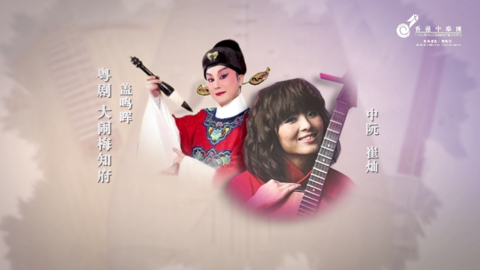
He came to Hong Kong in 2005 and left in 2017. This is Cui Can's 12 years of efficient growth. She fully integrated into the city in 2 years, established a family and business in Hong Kong, adapted to the fast-paced life here, and speaks fluent Cantonese; she has achieved steady professional advancement in 5 years, and sat from the corner of the stage. In the center of the stage, and completed his first large-scale concert solo with the Hong Kong Chinese Orchestra, he gained a lot of Hong Kong fans who love traditional folk music.
Everything seems to have settled, but she likes to jump out of her comfort zone and start a new journey.
Returning to the Mainland to grow together with "Houlang"
In 2017, the Suzhou Chinese Orchestra was established and a global recruitment notice was issued.
Cui Can set off again, and this time, she returned to the mainland with her husband and daughter, settled in Suzhou, and became a member of the Suzhou Chinese Orchestra.
Why did you choose to come to Suzhou? Cui Can felt that the right time, place and people were indispensable.
She likes to step out of her comfort zone. After 12 years of growth, she wants to seek more challenges. This is the right time.
Like Hong Kong, Suzhou is also an open and inclusive metropolis. At the same time, it has a history of 2500 years, both classical and modern. "One year during the rainy season, I was sheltering from the rain in the Tingyu Hall in the Humble Administrator's Garden. The rain outside the hall was hitting banana leaves, and a chessboard was placed in the hall. In a trance, I seemed to be the owner of this garden. Later, when I played again For music such as Jiangnan Sizhu, you will subconsciously think of the experience of listening to the rain in the garden, and you will naturally have inspiration when dealing with music.” This is a geographical advantage.
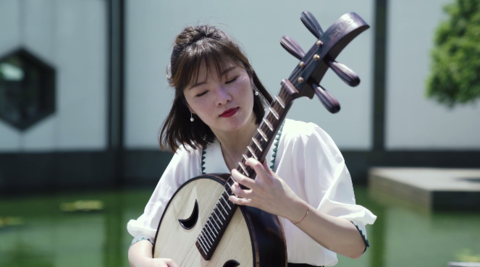
At the same time, many idol-level masters in Cui Can's heart gathered in the Suzhou National Orchestra, accompanied by a group of energetic young musicians.
The superposition of various factors, Cui Can came.
Compared with the Hong Kong Chinese Orchestra, which was born in 1977, the Suzhou Chinese Orchestra established in 2017 is like a child. This is Cui Can's description, "The average age of our Suzhou Chinese Orchestra was only 26 or 27 when it was established. Most of them are fresh graduates, and they have grown up together in the orchestra, and those who walk into the concert hall to enjoy our orchestra’s performance can feel our energetic and aggressive state.”
On the second floor of the orchestra's office is a row of piano rooms with rehearsal rooms of various sizes. After each joint rehearsal, the members of the orchestra would go to the piano room for additional practice, and polish the problematic passages in the rehearsal. Although the rehearsal was over at four o'clock in the afternoon, at eight or nine in the evening, the piano room was often brightly lit.
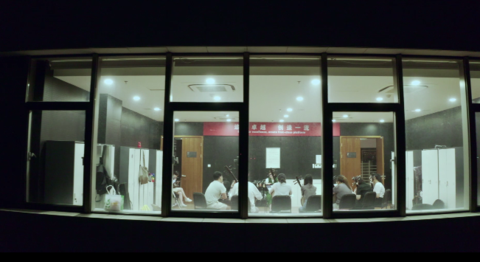
Rehearsal hall at night
As the voice director of the plucked part, Cui Can often stays behind to practice with his friends in the voice department, helping young musicians to break through technical problems. Variety.
In the past, in the Hong Kong Chinese Orchestra, Cui Can was called "Can Can" by others. She was the youngest generation in the group, but in Suzhou, she became the more experienced and older guide in the group, and everyone called her She is "Sister Can". "The change of identity has brought me a sense of responsibility. Everyone's active and hard work also reminds me that I can't slow down because of my age and experience. I have to share my experience in the orchestra for more than ten years." Houlang', and walk with them to a better future with traditional folk music."
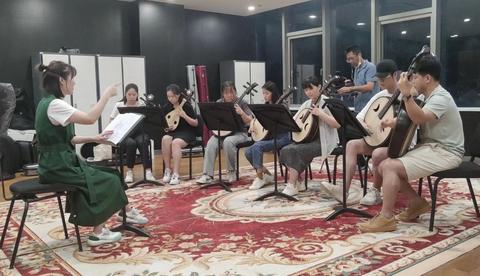
Looking back, Cui Can participated in the celebration of the 10th anniversary of Hong Kong's return to Hong Kong in the third year (2007), and later she participated in the 15th and 20th anniversary celebration performances. Before that, she never thought that the little girl who had watched the live broadcast of the return from TV could also be at the scene of the return anniversary celebration in person. This year marks the 25th anniversary of Hong Kong's return to the motherland. Cui Can said: "If I were in Hong Kong, I would still be part of this grand celebration. Although I am thousands of miles away, I will still be with a group of like-minded people. The best folk musicians, use music to send the best wishes to Hong Kong."
 渝公网安备 50010702504639号
渝公网安备 50010702504639号